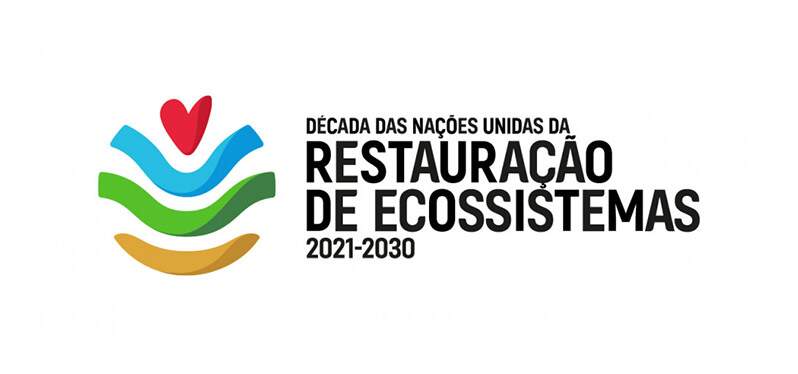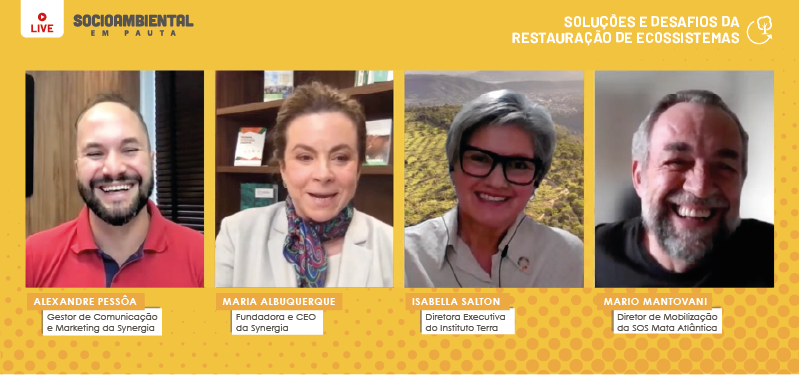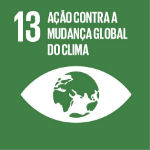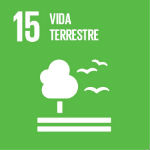Posted in: 08/31/2021
The United Nations (UN) has declared this year as the official start of the Decade of Ecosystem Restoration, which will end in 2030 – the same deadline for the fulfillment of Agenda 2030 and the Sustainable Development Goals (SDGs).
Although the Organization divides its efforts between encouraging the achievement of all the proposed goals, and ensuring that they are linked together, the Goals that have stood out the most are those related to preserving life on land, life in water, and action against global climate change and all related impacts.

After all, we have reached levels of environmental degradation and species extinction that are considered unprecedented. The destruction of the planet continues apace, threatening ecosystems, biodiversity, and all forms of life. More than stopping the degradation curve and preserving the environment, it has never been more necessary to invest in its restoration.
With the advance of the consumption of natural resources, it is estimated that the preservation processes alone will not be enough to avoid an imminent collapse in the productive systems.
The report “Becoming #RestorationGeneration: Restoring Ecosystems for People, Nature and Climate,” released by the United Nations Environment Programme (UNEP), points out that countries need to commit to executing action plans aimed at restoring the planet’s ecosystems to mitigate the impacts of the triple threat: Climate Change, the Loss of Nature, and Pollution.
The contemporary environmental landscape is worrisome, and the road to ecosystem restoration is fraught with challenges. But it is still possible to be optimistic and think of solutions to repair the socio-environmental impacts caused by degradation.
This is the conclusion of the expert(s) who participated in the =”Socio-environmental on the Agenda: Solutions and challenges of ecosystem restoration” Broadcast, held by Synergia Consultoria in partnership with Instituto Terra and SOS Mata Atlântica.
We invite you to this important conversation:
With degrees in Exact and Biological Sciences and Business Administration, Isabella has more than 25 years of experience. She has served in large national and international organizations, and has been leading the board of the Instituto Terra since 2016.
A geographer by training and a specialist in watershed management, Mario has worked in the environmental field for more than 40 years. For 32 years at SOS Mata Atlântica, he has held the positions of superintendent, director of Public Policies, and is active in the Parliamentary Environmentalist Front.
In Urban Environmental Structures, M.Sc. in Sociology of Labor, and B.Sc. in Social Sciences. Maria has more than 25 years of experience in public policy planning and social and corporate responsibility.
Check out the complete video of the “Socioambiental em Pauta: Solutions and challenges of ecosystem restoration” Broadcast and get to know the theme!
Now you can see a summary of the main topics discussed during the meeting.
Considering the political, social, and economic scenario in Brazil, in your opinion, what is the biggest threat to the Environment? What are the social consequences and viable solutions underway?
Isabella: Thinking about Brazil today, I understand that the most difficult thing we have is the denialism we are living, the fact that situations are glaringly obvious in our daily lives, and yet, there is a way of thinking of these people who can’t see that the time to act is now. In fact, the time to act should have been 20 years ago. But if it wasn’t, we must start now, because we have to defend what is left, to take attitudes that seek society’s engagement. As the [UN] report points out, if we don’t act now, there will be no more time. The connection between humans and the biome is fundamental and we depend on it.
Maria: I would say it is the climate crisis itself, an urgent task facing humanity. One of the aspects that cause this environmental problem has to do with population growth. If we maintain today’s growth rate, by 2050 there will be 9.5 billion people in the world. Brazil is home to major tropical ecosystems and almost 1/4 of the planet’s water resources. But we can add to the problem of unrestrained occupation the issue of irrational consumption and the occupation of protected areas by very vulnerable populations.
Mario: Our biggest problem is the dismantling of all the institutionality we have achieved. We have lost the protagonism and we are seeing the dismantling of the framework that was built, with hard work, and that placed Brazil in the highest level among the nations because of the capacity and natural assets we have. Nobody has the biodiversity that we have, and we are losing the protagonism of this world.
Studies show that forests have more economic value when they are standing. The bioeconomy and agroecological systems have been pointed out not only as a solution for environmental preservation, but also for economic development. On the other hand, there is criticism that one should not attach economic values to natural resources, as this opens the way for a game of environmental compensation that is difficult to regulate.
What is your vision on the sustainable exploitation, if we can call it that, of natural resources?
Maria: The reflection about whether sustainable exploration is viable or not is because this concept is open to the so-called environmental offsets, where a certain environmental expense is exchanged for an equivalent gain. This concept is questioned because of a supposed unreliability of the criteria for valuing natural resources. There is also a big debate about the role of technologies in the efficient use of resources and there is no consensus.
Replacing the current development model with a sustainable resource exploitation model is not a task for a single country and a single community. It is a task that requires very active international cooperation.
I have an optimistic view that the global movement has grown with speed in recent years, with the SDGs, the ESG approach, the Sector Impacts Agenda. All of this shows us that this discussion about the possibility of having a sustainable development model, which uses the planet’s natural resources efficiently, is viable and is a discussion that has no return.

Mario: One thing that became very evident with the IPCC report is that we have a lot of science today, things that science has come up with and that shows some possibilities for solutions within it. And even for people who see degradation processes, compensation can be a way. But we have payment for environmental services, which is recognition, we have incentives and associations. Today, we have so many ways that can overcome some of the difficulties. The very action of NGOs and companies that pursue this ESG path. We have been adding values, opportunities, and learning to the point where we can say that it is possible to change. We must test all the models; they are all valid.
Isabella: What we are looking for is a change in mentality. The form of what was understood as development and economy was completely different from what we understand is possible today, that is acceptable. Which is worse, to compensate or to leave the damage? What we must do is prevent this from happening as much as possible. We need to look at ways of not deforesting more, not having further damage, and seek to compensate, maintain, and roll back what has been destroyed.
Environmental commodities, the policies of development agencies and economic valorization of the environmental issue, such as the ESG agenda, advance in Brazil and in the world (ESG, Environmental, Social and Governance), engaging the business community in the socio-environmental cause.
To what extent can the business community influence socio-environmental policies in the country? How do you perceive this relationship between the business world and the institutions?
Isabella: Responsibility must be put into practice in order for you to really look for solutions. Because the little one has a voice, but the big one has a much louder voice. We must really create a big mobilization chain, or better activate the ones that already exist, because there are already many movements happening. But they have to have bigger goals than just the private ones. The whole society needs to mobilize on public policy issues, for example.
Mario: The plurality of SOS has brought us closer to various companies. They have a very big role to play in putting a stop to the negationism and showing that Brazil’s position today can bring damage to jobs, to the economy, to sustainability and nature. The definition of what is sustainable development goes through this. When it comes to nature, we have to think about what we are going to leave [for future generations].
Maria: We see this interest from companies to prioritize social and environmental issues, such as ESG. A recent survey indicates that 100% of respondents said that ESG will be the top priority for companies in the coming years. On the other hand, some things still happen slowly. Only 5% said that they have already managed to incorporate some concepts. In other words, this is still very low in concrete terms. But these are positive signs, of the vitality of this discussion.
Did you like the interview? So be sure to check out the exclusive content we’ve prepared! In it, you will know the views of our guests on:
• The importance of discussing the theme of restoration;
• How the restoration of ecosystems can be decisive in facing the impacts of the triple threat: climate change, loss of biodiversity and pollution;
• How far is Brazil from reaching the restoration goals proposed by the UN for this decade and if there is a way to evolve faster in this process;
• What have been the main difficulties faced by Instituto Terra and SOS Mata Atlântica in this journey against environmental degradation.
And, of course, you also get to know how to do your part and support the Institutions. Watch the video!
Want to know the opinions of/of the expert(s) on other topics – such as Green Property Tax, the difference between exploration and sustainable development, the importance of smallholder production, the concern of quilombola communities with devastation and land issues for native peoples?
Check out the full Broadcast on Synergia’s Youtube channel.


Sign up and receive our news.